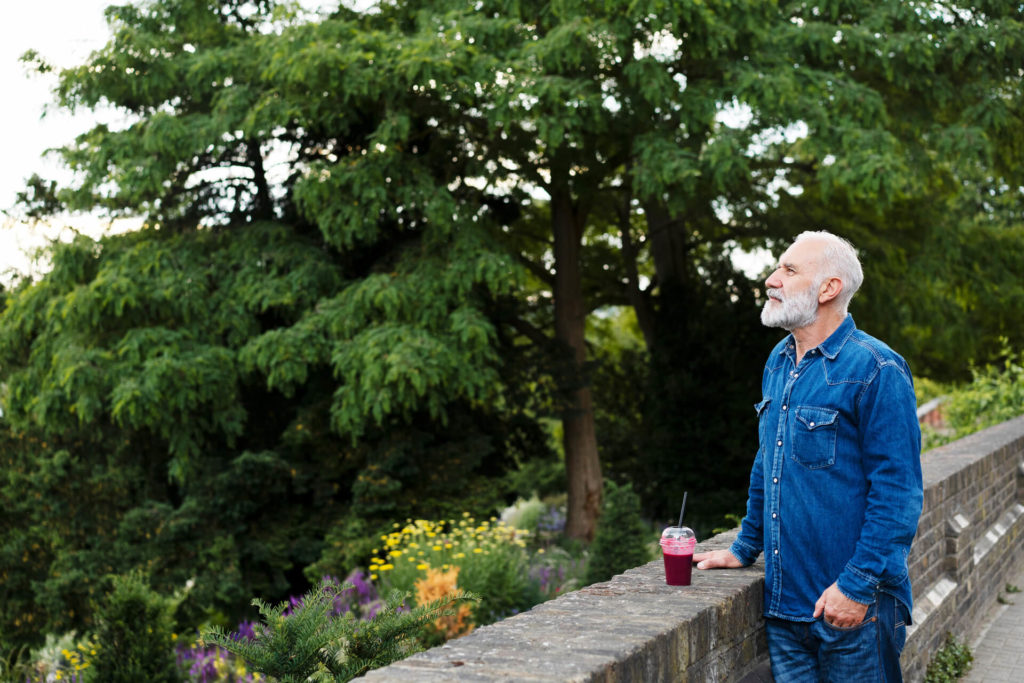
Choosing mindfulness
Actively deciding to become more mindful can enable us to become more present, sensory and attentive.
It could be one of the most important changes we make in our lives.
British Essayist and Travel Writer Pico Iyer captures this sentiment in his TED talk:
“In an age of acceleration, nothing can be more exhilarating than going slow.
And in an age of distraction, nothing is so luxurious as paying attention.
And in an age of constant movement, nothing is so urgent as sitting still.”
With mindfulness, we can live with better health.
The effects of practicing mindfulness, over time, has been linked with reduced stress, less depressive symptoms, and improved recovery. Overall, better outcomes in our personal and professional lives.
The challenge of mindfulness
Mindfulness, even taking time to actively do less doesn’t come naturally to most of us.
Our minds are accustomed to engaging with the world, and we can struggle being left alone with our thoughts.
As a result, we’re discovering more about how we think.
When we’re alone our minds can become overactive due to internal and sensory stimuli drawing our attention to multiple things at once.
As a result, this can increase our levels of restlessness, anxiety, and intrusive thoughts.
Over time, mindfulness enables us to observe our thoughts ‘from the outside’, reduce our multi-tasking and helping us have more control of our emotional state.

What makes mindfulness worthwhile
Even with its challenges, mindfulness is an effective tool for our wellbeing.
As a chosen practice or as part of therapy, it does more than counter our culture of busy-ness.
In contrast to doing nothing, mindfulness is a technique to create a state of calm, using an anchor like our breathing. Mindfulness can incorporate practices like breathing techniques, meditation, acceptance exercises and body scanning.
While the well-known benefits relate to mental health and mental function, mindfulness can also help us manage:
- Resilience
- Heart health
- Irritable bowel syndrome
- Pain
- Addiction
- Immune function
- Anger
- Stress
- Focus
How to make time for mindfulness
- Find a way to practice mindfulness which suits your lifestyle – this could be through an in-person or online course, or simply starting by making time in your calendar to ‘brain dump’/write a list or sit quietly. Your practice will grow and change as you need it to.
- Start simply – beginning or re-starting your mindfulness journey doesn’t need to be extravagant. You can begin your practice simply by listening to some of your favourite music or ambient sounds, without doing anything else.
- Try a period of unplugging from your digital devices – you don’t have to spend extravagant amounts of money to ‘unplug’. This can start with not using phones during meals, or between certain hours. A highly beneficial time to ‘unplug’ is in the hour before you go to bed.
- Don’t be too hard on yourself – there is no ‘wrong’ way to become more mindful, or practices meditation. Be comfortable and do not focus your attention on anything. If you find your mind focusing too much on something, bring yourself back to being in the present moment.
Help to take the next step
Start your wellbeing and mindfulness journey, with support from a mental health professional.
If you are already signed up to CiC’s EAP, our counsellors can help you discover how mindfulness can work for you.
Resources
- How Mindfulness Makes a Difference – CiC Wellbeing
- Mindfulness – Mind UK
- How and Where to Learn Mindfulness – Mind UK
- The Art of Stillness – Pico Iyer
- How to Tame your Wandering Mind – Amishi Jha
- 10 Health Benefits of Mindfulness – AXA Health
- Just Think: The Challenges of the Disengaged Mind – Science.org
- People Would Rather be Electronically Shocked Than Left Alone With Their Thoughts – Science.org
- Mindfulness Hurts. That’s Why It Works – The Atlantic
- An Unintended Consequence of Mindfulness – The Washington Post